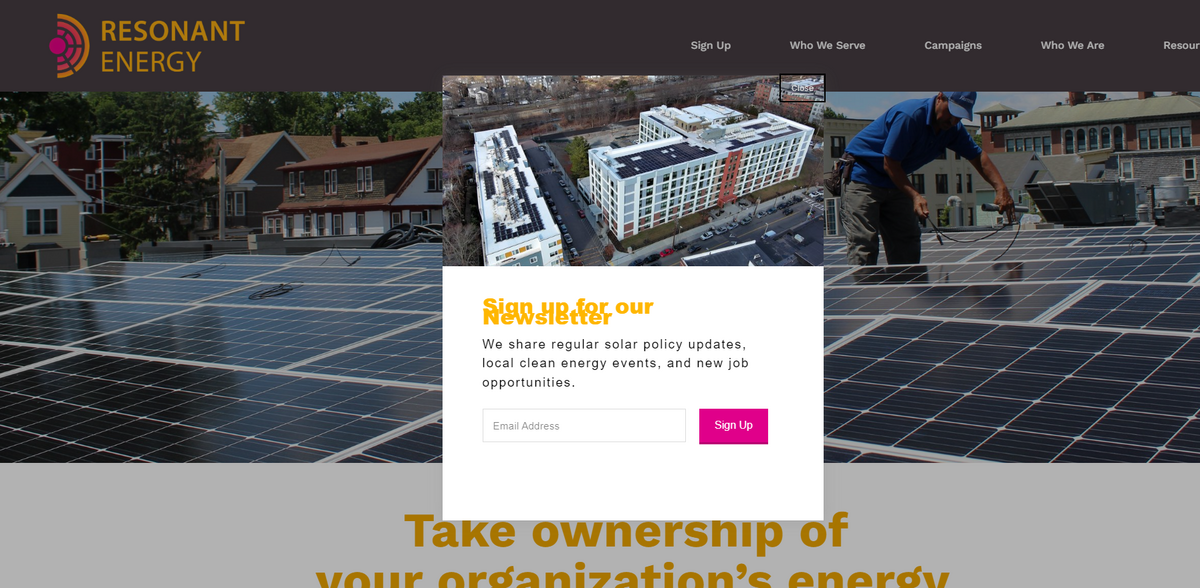What Is Resonant Energy’s Project?
Resonant Energy is a Boston-based solar company with a mission to build a more equitable clean energy transition by serving nonprofits, affordable housing, and underinvested communities across Massachusetts. The project aims at integrating solar photovoltaic, solar + storage, and consultation services that emphasize both practicality and social responsibility. This initiative brings together expertise in assessing a building’s solar capacity, crafting custom proposals that highlight long-term savings, and connecting organizations with financing options. It’s all about delivering industry-leading turnkey development services to mission-aligned organizations that are looking for cost-effective ways to meet resiliency, LEED, BERDO 2.0, or net zero goals… all while supporting a broader environmental justice movement.
Key Benefits of the Solar Access Initiative
Below is a summary of the critical figures and facts associated with this initiative:
- Assess your buildings’ solar capacity
- Create a custom proposal to project your long-term savings
- Connect your organization with various financing options
- Manage permitting, development, and installation process
- Support accessing federal and state incentives and direct pay
- B-Corp certified since 2020, with a stellar score of 96.5
Solar Solutions for Diverse Communities
The project is built on a foundation that recognizes the need for diverse solar solutions within communities that have historically been underinvested. It specifically incorporates key areas of expertise such as multifamily affordable housing, nonprofits, houses of worship, new construction, and low-income community shared solar. The approach ensures that clean energy access is not just an environmental or economic challenge but also a matter of environmental justice for each neighborhood served. This kind of focus resonates with organizations looking to bridge the gap between renewable energy technology and social equity… making solar for all a realistic and tangible goal.
A Commitment to Social and Environmental Accountability
Resonant Energy is proud to have earned its place as a registered B-Corp, meeting high standards of social and environmental performance, accountability, and transparency. Since certification in 2020, the company has emphasized a commitment to diversity, equity, and inclusion (DEI). It prioritizes equitable representation within its team, advocates for policy changes, nurtures authentic community relationships, and remains accountable through ongoing learning and transparency. These efforts aren’t just corporate buzzwords; they reflect a deep-seated drive to address challenges faced by the nonprofit solar and affordable housing sectors while promoting clean energy access.
Innovative Projects and Partnerships
Among its many endeavors, the Dorchester Bay case study stands out as a prime example of innovative collaboration. The Solar Access Program brought solar to Dorchester Bay’s Bornstein and Pearl Facility, a hub for several small food businesses in Dorchester. This project was a collaborative effort between Resonant Energy, the Dorchester Bay Economic Development Corporation, and the Boston Affordable Energy Coalition, marking a significant milestone in the Solar Access Campaign. The campaign itself garnered national attention from the Department of Energy Sunshot Initiative… showcasing a model that others can look to for effective solar panel installation projects designed to boost clean energy access.
Project Impact on Sustainable Development Goals
- SDG 7 – Affordable and Clean Energy: Providing institutions with sustainable options.
- SDG 10 – Reduced Inequalities: Serving nonprofit, affordable housing, and underinvested communities.
- SDG 11 – Sustainable Cities and Communities: Integrating solar solutions into existing buildings and new constructions.
- SDG 13 – Climate Action: Promoting renewable energy and reducing overall carbon footprints.
Getting Started with a Brighter Future
Organizations interested in progressing toward their resiliency and sustainability goals can explore a no-commitment portfolio analysis to assess the solar capacity of their buildings at no cost. A first step involves contacting the team for a review of the organization’s portfolio, where practical and financially sound options are presented based on the unique priorities of each project. The initiative promises cost-effective support, whether it involves incorporating solar into existing structures or integrating into new construction, ensuring that every installation contributes toward a greener, more equitable clean energy transition. By aligning with such forward-thinking projects, communities and organizations can collectively work toward a future that is not only powered by renewable energy but also enriched by sustainable development and environmental justice.


















